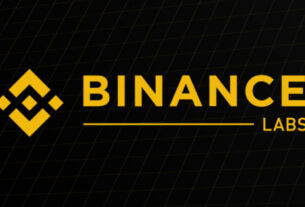Blockchain Wealth Shift is redefining the financial landscape, transforming how governments, businesses, and individuals view money and transactions in a rapidly evolving digital era. Not only are cryptocurrencies no longer considered a fringe or speculative investment in the dynamic financial sector, but they are also becoming a key participant, transforming the face of traditional banking.
Beginning in the latter half of 2024, governments, businesses, and financial institutions started reevaluating their position on money and transactions in reaction to the proliferation of digital currencies such as Ethereum, Bitcoin, and other assets based on blockchain technology. As a result of breakthroughs in blockchain technology, decentralized finance (DeFi), and central bank digital currencies (CBDCs), cryptocurrencies present the existing financial system with difficulties that have never been seen before.
Blockchain-Based Finance
The decentralization of banking is one of the biggest ways cryptocurrencies are disrupting finance. Traditional banks have handled savings, loans, mortgages, and money transfers. Cryptocurrencies use decentralized blockchain networks to verify transactions via a dispersed network of computers. Decentralization lets people send and receive money directly, giving them more financial power. Cryptocurrencies provide P2P transactions, reduced costs, and quicker payment times. Decentralized finance (DeFi) systems allow people to lend, borrow, and invest without banks or brokers, creating a more accessible and transparent financial environment.
Blockchain-Powered Finance
There has been a significant shift in the bitcoin business due to the advent of decentralized finance (DeFi). Using blockchain technology, decentralized finance platforms have the potential to produce and deliver a variety of financial products and services without the need for conventional intermediaries like banks. Among the various things that fit this category are staking, lending, borrowing, insurance, and many more. Users are supplied with a more transparent, efficient, and cost-effective way of dealing with financial markets via DeFi platforms. This eliminates the need for traditional financial intermediaries.

Over the last several years, the DeFi ecosystem has expanded rapidly because billions of assets are held captive in smart contracts on Ethereum and other blockchain networks. It is possible for individuals living in regions that do not have traditional banking infrastructure to have access to financial services via the use of DeFi applications. This would result in the creation of a more inclusive financial system that would provide users with greater power all over the world. DeFi’s innovations, such as yield farming and liquidity pools, will enable more individuals to access financial services.
Decentralized Wealth Protection
Cryptocurrencies are claimed to safeguard against inflation and financial calamities when economies are unstable. As global inflation grows, particularly following the epidemic, investors are utilizing Bitcoin as a store of wealth. Some claim Bitcoin’s 21 million coins make dollars and euros scarcer, limiting inflation. Cryptocurrencies are helpful amid political instability or financial system collapse since they are not beholden to any country’s monetary policy or economy. Decentralized Crypto assets defy government capital controls and currency exchange limitations, which may severely limit money availability during economic downturns.
Central Bank Digital Currencies
Bitcoin and Ethereum revolutionized the financial system by offering an alternative to fiat currencies, but central banks are studying CBDCs. Digital currencies are issued and regulated by central banks, but blockchain technology enables secure transactions. CBDCs aim to combine digital currency benefits with money stability and regulation. China, Sweden, and the EU test CBDCs. Daily transactions include millions of Chinese using the digital yuan (e-CNY). CBDCs may improve financial inclusion, cross-border payments, and transaction costs. However, privacy, government eavesdropping, and decentralized cryptocurrency weakness are concerns.
Blockchain Banking Integration
The digital currencies have made financial institutions rethink their role in the global economy. Blockchain technology helps banks and investment firms streamline cross-border payments and settlements, reducing fraud and expenses. Customers want digital assets. Therefore, conventional financial institutions invest in bitcoin trading platforms and custodial services. However, incorporating cryptocurrency into traditional banking takes a lot of work. Regulatory uncertainty, volatility, and security concerns hamper adoption. Many countries still codify innovation and consumer protection from fraud, money laundering, and market manipulation.
Also Read: Solana Price Prediction For 2025 And Its Promising Future
Summary
Full adoption is a goal, but many obstacles are along the way. Governments and financial institutions must collaborate to incorporate digital currencies in a manner that safeguards consumers and encourages innovation. The cryptocurrency revolution, which began in December 2024 and is still going strong, has the potential to alter our relationship with money for the better for future generations.



